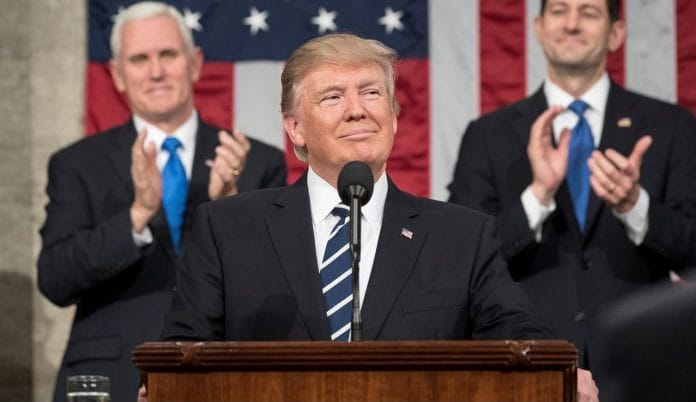Move comes days after activists in India wrote to PM Modi asking him to make the ongoing negotiations at the UN more effective.
New Delhi: American civil society has urged the Trump administration to take concrete steps to make the political declaration on tuberculosis (TB), the world’s most infectious killer, favourable to the needs of poor and developing nations like India.
The move comes days after public health activists in India wrote to Prime Minister Narendra Modi to step in to make the ongoing negotiations at the UN for a global consensus on TB more effective.
Also Read: PM Modi asked to take on the US to ensure TB drugs remain affordable
ThePrint has already reported that the US intervention in the UN negotiation on behalf of its pharmaceutical industry is seen to have weakened the fight against TB.
Now, in a letter addressed to US ambassador to the United Nations Nikki Haley, a group of NGOs and American civil society organisations have highlighted that the language of the TB declaration has been weakened, which could block the affordability of the vaccines, diagnostics and medicines for low and middle-income countries.
The letter dated 2 August is written by 18 organisations, including American Medical Student Association, Oxfam, Student Global AIDS Campaign, Universities Allied for Essential Medicines, American Thoracic Society and Drugs for Neglected Diseases Initiative.
It acknowledged that if TRIPS (Trade-Related Aspects of Intellectual Property Rights) flexibilities lose their essence, such countries would fail to access the present and future essential TB vaccines, diagnostics, and medicines.
“The language in both the preambular and operating paragraphs on promoting equitable access to medicines continues to stall this vital declaration from advancing, thus making it difficult to finalise global consensus that guides a successful response to the global TB epidemic to truly end TB,” said the letter, a copy of which is available with ThePrint.
The letter, which is also marked to US international affairs adviser Laurie Phipps, Ann Blackwood of the Department of State and Lynn Filpi of the Department of Health and Human Services, pointed out that the US’ move could be alarming.
“Further delay in the finalisation of the political declaration is not in the interests of the US or global community. As we write, lives are being lost at the rate of three individuals every minute from TB, a treatable and preventable disease,” the letter says.
“The lack of commitment to affordable medicines and health technologies in the operative text of the political declaration for the UN High-Level Meeting (HLM) on September 26, 2018, is alarming,” it adds.
Also read: India-US relations survived World War & Cold War. They may not survive Trump
The main hurdles
The current text of the declaration says that “IP rights are an important incentive in the development of new health products” which protect the profits of big pharma lobby of the US but compromise public interests.
However, the letter snubs the American government’s stand. “Intellectual property monopolies play a limited role in incentivising innovation for diseases like tuberculosis without a lucrative market, but play a significant role in impeding access to the lifesaving medical tools that are developed,” reads the letter.
It is also trying to tweak the clauses of TRIPS agreement which includes important public health safeguards that allow governments to exercise their rights to ensure access to medicines and other vital health technologies.
TRIPS flexibilities, as highlighted in the Doha Declaration, uphold the right of World Trade Organisation (WTO) member states to include in their patent legislation a provision for “use without authorisation” of the patent holder.
According to experts, the US pressure has diluted global commitment to TRIPS (Trade-Related Aspects of Intellectual Property Rights) flexibilities, which ensure access to affordable TB medicines, vaccines and diagnostics. This was reflected in the draft of the political declaration on TB circulated on 20 July.
This means the newer TB drugs, such as ‘wonder drug’ Delamanid and Bedaquiline, will become inaccessible to patients in developing nations, including India.
Also, Article 5 of the Doha Declaration says that the WTO member states have the freedom to determine the grounds for compulsory licensing and that public health crises, including those linked to HIV infection, TB, malaria and other diseases, can represent a national emergency or other circumstance of extreme urgency.
Health activists urged PM Modi to take a stand
ThePrint has exclusively reported that 25 health organisations and 32 public health activists have written a letter to Prime Minister Modi, seeking his intervention in the ongoing negotiations at the UN.
The letter points out that the language has been tweaked in the TB declaration, which calls on governments in rich countries to contribute appropriately to research and development and increase financing in order to close the estimated $1.3 billion gap per year for tuberculosis research.
“It is widely acknowledged that IP directs investment choices away from public health needs of developing countries such as TB, considered less profitable, and steers investments to areas where pharmaceutical corporations can maximise profits for diseases affecting more affluent populations,” (sic) it reads.
Also Read: Mamata Banerjee is poetry-bombing the Modi government, for better or verse






